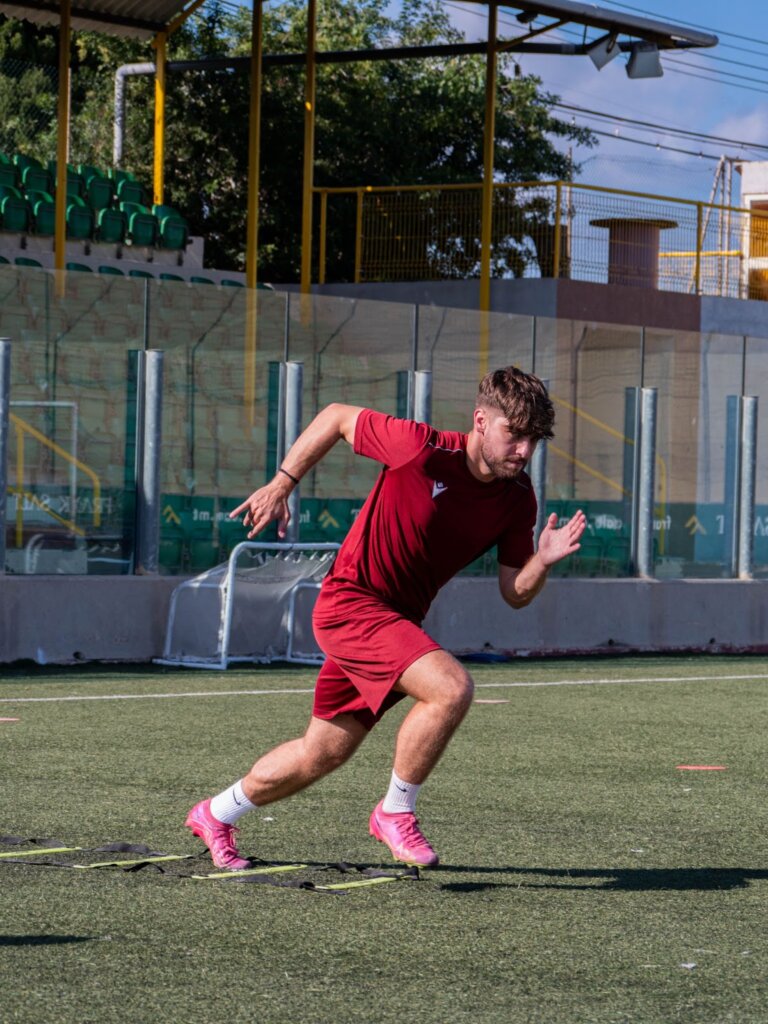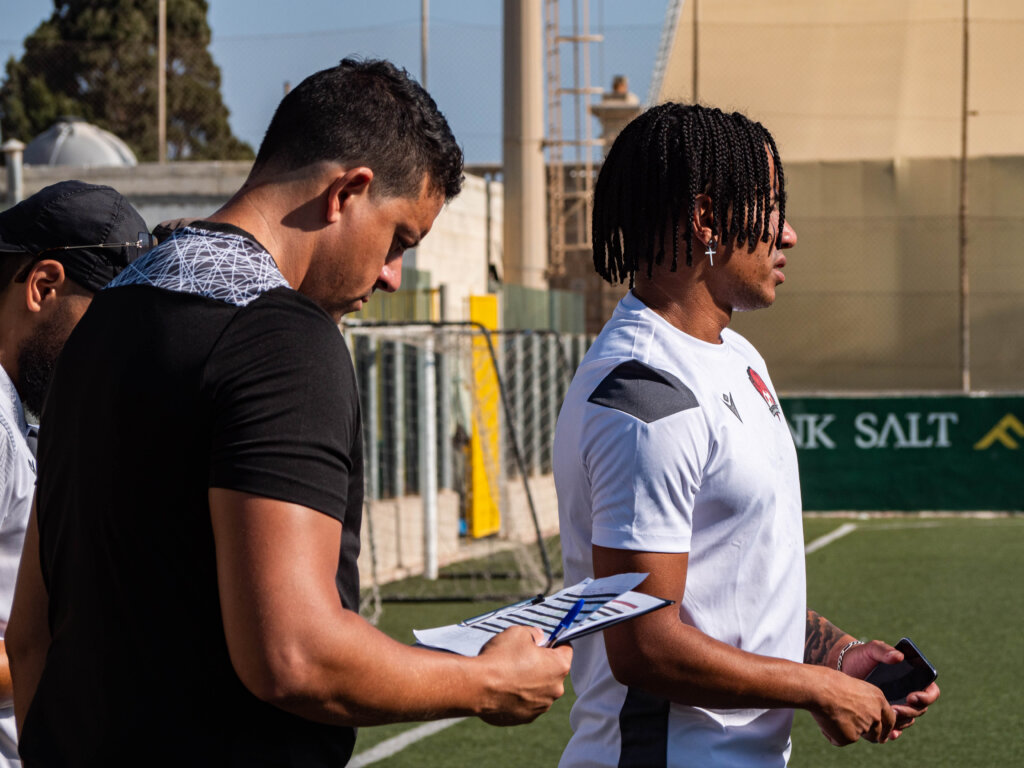A detection match represents much more than just a game, this is your moment of truth. The recruiters and coaches present will be assessing not only your technical skills, but also your mental, your adaptability and your development potential. Every move counts, every decision is scrutinised.
In this article, we reveal the key strategies to maximise your chances of success at your next detection match. From physical preparation to psychological aspects, not forgetting the mistakes to avoid, you'll discover how to turn this event into a springboard towards your goals.
Summary
Prepare yourself physically and technically
Optimise your physical condition
Your physical fitness is the basis of any successful performance in a detection match. Scouts pay particular attention to your stamina, speed and explosiveness. Start your preparation at least two weeks before the event.
Concentrate on exercises specific to your sport. For football, focus on short sprints, changes of direction and plyometric exercises. In basketball, work on your vertical jumps and lateral agility. The aim is to be in peak condition on the big day.
Don't forget the importance of rest. Quality sleep and adequate recovery will enable you to perform at 100% of your abilities. Avoid any intensive training 48 hours before your detection match.
Sharpen your technical skills
Technical automatisms must be perfectly mastered. Repeat the basic movements until they become instinctive. During a detection, you won't have time to think about every move.
Work particularly on real match situations. If you're a goalkeeper, practise different types of save. If you're an attacker, perfect your finishing in different positions. This technical preparation will give you confidence and fluidity in your movements.

Master the mental aspect
Manage stress and pressure
The pressure of a detection match can be overwhelming. Learn how to turn it into positive energy. Deep breathing techniques can help you stay calm before and during the match.
Visualise your success. Imagine yourself performing great technical moves, scoring points or making decisive interventions. This mental preparation boosts your confidence and programmes your brain for success.
Accept that mistakes are part of the game. Recruiters understand that no player is perfect. What counts is your ability to bounce back after a mistake or failure.
Develop your game intelligence
Detectors are looking for players who can read the game and make the right decisions quickly. Show that you understand the tactical issues and can adapt to the different phases of the game.
Communicate with your team-mates. A player who guides his partners and gets involved in the collective organisation scores points with observers. Your natural leadership can make all the difference.
Adopt the right attitude in the field
Show your determination
Your physical and mental commitment must be total from the first minute to the last. Recruiters look at your commitment to every ball, even the ones that seem to be lost in advance.
Display a positive attitude at all times. Encourage your team-mates, congratulate them on good deeds and keep smiling even in the face of adversity. This mentality reveals your character and your ability to maintain a good team spirit.
Follow the instructions
Listen carefully to the coaches' instructions and apply them to the letter. Even if you don't agree with certain tactical decisions, show that you can adapt and follow a game plan.
You should also respect your opponents and the referees. Impeccable behaviour shows your maturity and professionalism, two qualities much sought after by clubs.
Avoid fatal mistakes
Don't play solo
The most common mistake made during a detection match is to want to do everything on your own to show off. This individualistic approach generally does the player a disservice. Recruiters prefer an effective team player to a spectacular but selfish individualist.
Always opt for the simplest and most effective collective solution. If a team-mate is in a better position than you, don't hesitate to give him the ball. This intelligent play will be noticed and appreciated.
Don't neglect defensive phases
A lot of players concentrate solely on attacking phases during a detection. This is a major mistake. Your defensive involvement reveals your generosity and your overall understanding of the game.
Press on, harass your opponents and show that you're prepared to put your shoulder to the wheel for the team. This warrior attitude often makes the difference in the recruiters' final assessment.
Prepare for the post-match
Remain available and professional
After the final whistle, your evaluation continues. Make yourself available to recruiters who may wish to talk to you. Answer their questions sincerely and professionally.
Prepare a few details about your background, your objectives and your motivation. This information complements the field observation and gives the detectors a better idea of your personality.
Learn from experience
Whether the result is positive or negative, analyse your performance objectively. Identify your strengths and areas for improvement. This self-critical approach will be invaluable for your next detections.
Don't hesitate to ask the organisers for constructive feedback if you can. Their advice will help you progress and prepare you better for future opportunities.

Conclusion
A successful spotting match can change the course of your sporting career. By following these tips and preparing thoroughly, you can maximise your chances of impressing recruiters.
Remember that every detection is an enriching experience, even if it doesn't immediately lead to the desired result. Keep working hard, perfect your game and take every opportunity to show yourself.
Your next detection match could be the one that opens the doors to your most ambitious dreams. Prepare thoroughly, give it your best shot and remain confident in your potential.

